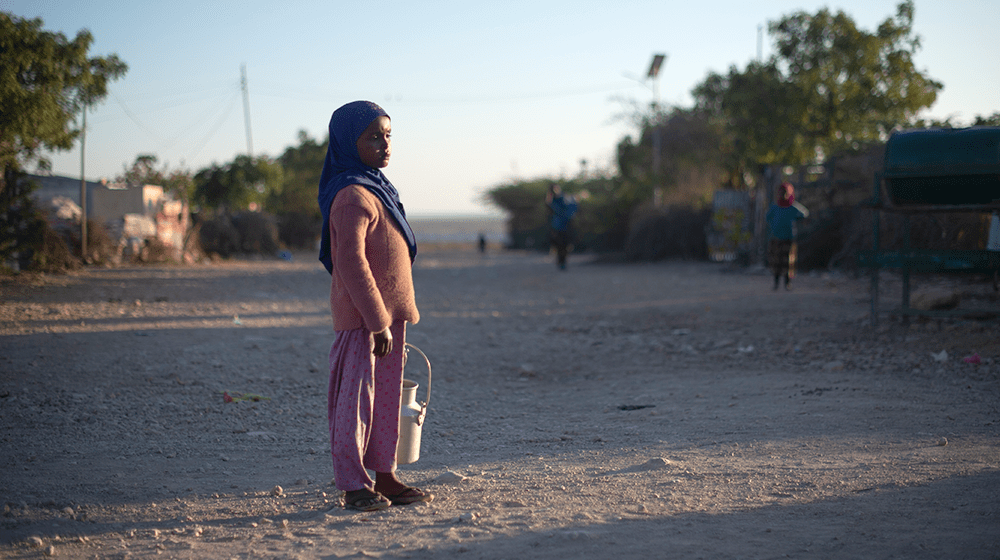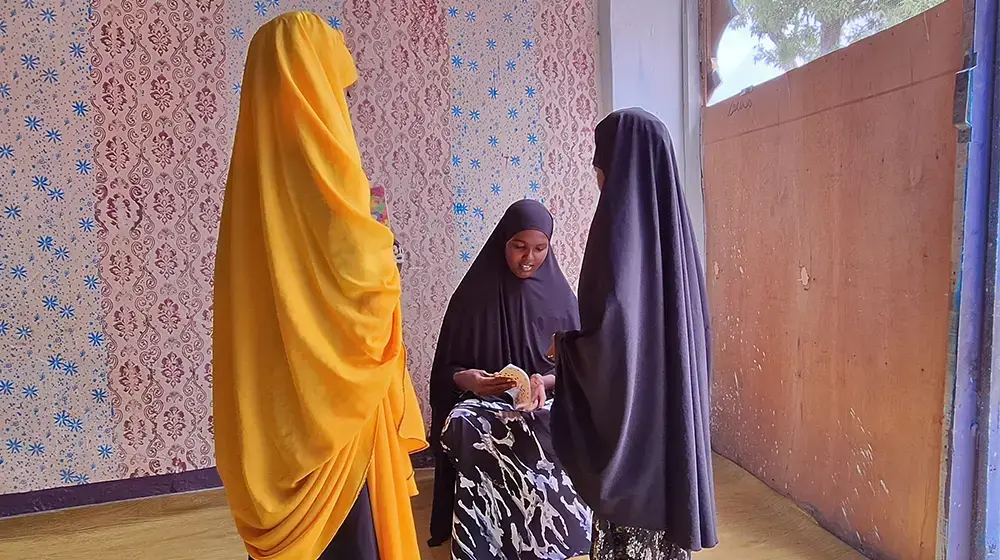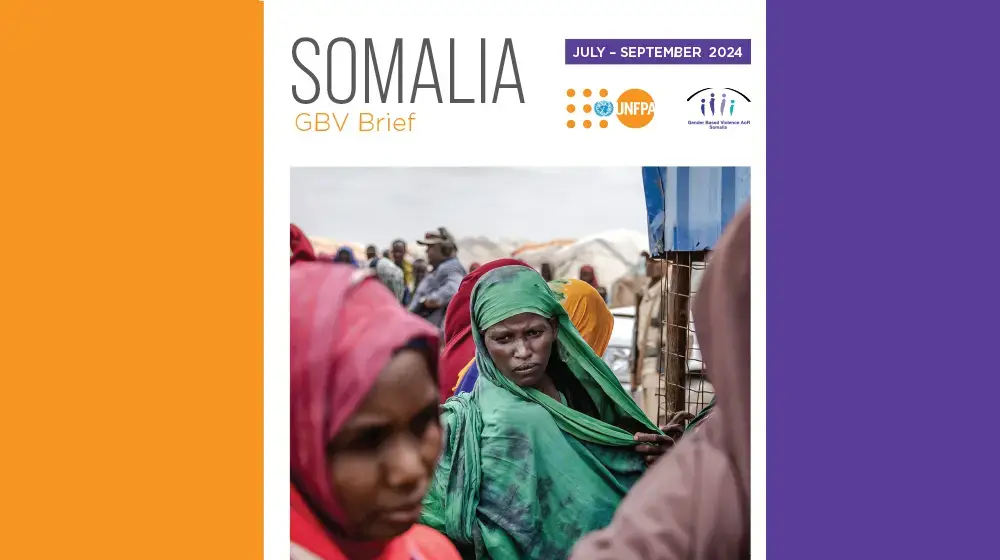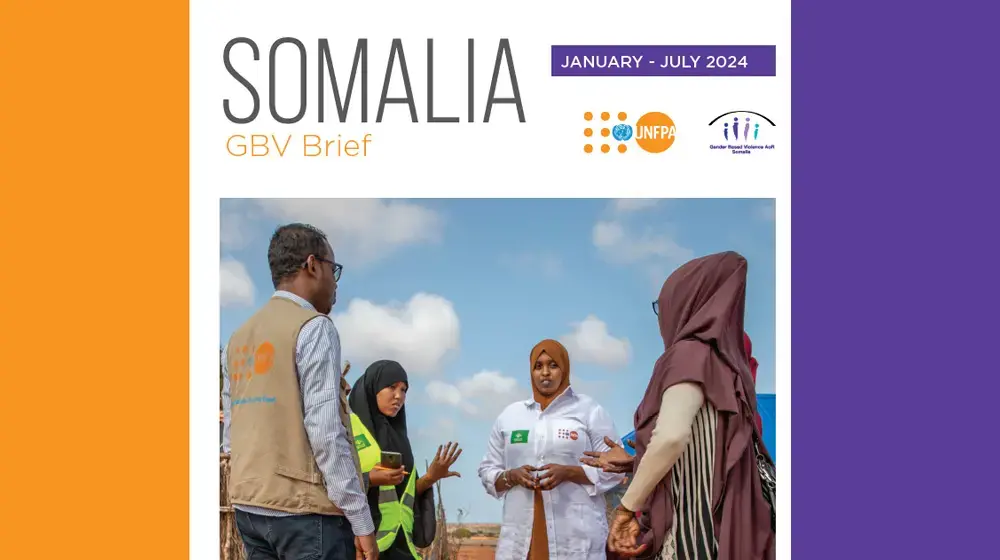By Niyi Ojuolape, Representative, UNFPA Somalia
One week ago, the world celebrated fathers on Father’s Day commemoration on June 18. The event rightly applauds fathers for their sacrifices for their families and the burden they bear. In recognition of the event, I had initially written a press release since the occasion is one that my organization, the UNFPA, dotes given the high premium that we place on issues that affect the family, and the interplay of roles and rights of individuals therein. And as a corollary, is my belief in the fostering of responsible fatherhood as a path and a massive boost to advancing the issues we care about, such as sexual and reproductive rights, gender equality and women empowerment, as well as ending gender-based violence. On second thought, I considered that I could discuss the vitality of fatherhood as it concerns the duty owed to the girl child.
Looking back in soul-searching reminiscence I realize that I have been lucky to enjoy the friendship and mentorship of exemplary fathers whose relationship with their daughters (children) I admired and still do admire deeply. Occupying a ringside seat in their lives and watching at close quarters the way and passion with which they related to their daughters, supporting them fiercely left an indelible mark on my mind and continues to resonate with me till this day.
Working with Professor Babatunde Osotimehin of blessed memory in the capacity that I did, allowed me to gain a peek into his professional and personal life. While passion for education for girls defined aspects of his work, it was at home and in the relationship he had with his daughters (he had four girls and a boy) that I came to experience the impact of a father’s support on the confidence, well-being, and life course of the girl child. In the most important of meetings, be it with the Executive Board, or even the UN Secretary General, Prof’s connection with them was such that he would pick his daughters’ call and excuse himself even just to say ‘Je ki n pe e pada lai pe’ (let me call you back shortly). From the stories he told me about their younger years and from what I saw personally, it didn’t take any time for me to realize that with Prof, his daughters can do no wrong. As a matter of fact, they are forgiven in advance for whatever lines they cross. It is apposite to mention that the Daughters also responded with love and deep affection. That, for me is quintessential fatherhood.
Another father figure, Prof. Femi Odekunle, also of blessed memory, represents one of the finest examples of fathering girls. Being in the inner corridors of his life gave me the privilege of witnessing his uncommon passion for his girls, two of which were his last borns. His eldest daughter could make him do anything, and such was the emotional connection between them that you needed not go far to understand why she was named after his mother; Ojuolape, which also happens to be my last name, and which was one of the earliest points of his endearment to me, as he took me under his arms as a son. It was satisfying to watch him dote his daughters in the most gracious and passionate manner. To complete this academic trilogy of those by virtue of whom I have since earned the sobriquet of ‘Associate Professor’ is Prof. Layi Erinosho, who is still very much with us, and by the grace of God is still going strong. A father of four, of which three are girls, Prof. Erinosho’s passion for the cause of women and girls extends beyond his home sphere, and is represented significantly in his research interest. Some of his best works in his discipline of Sociology are in-depth scholarly academic works and research that deals with Female Genital Mutilation (FGM) and inheritance rights for women in Africa. And then there is my father, a jurist for whom the equality of genders is an unassailable fact, and a human right issue.
The above encounters with these mentors enriched my approach to what needs to be done for women and girls, whether as a father at home or at my place of work. Appreciating the urgency of some of the actions that need to be taken, the UNFPA Country Office in Ghana, under my leadership, instituted the Youth Leaders (YoLe) Fellowship—a youth internship designed to attract young graduates from Ghanaian tertiary institutions. Setting up the fellowship was the first step; ensuring that most recipients were young women was even more critical. Thus, among the inaugural fellows, 70% of them were young women. In the second year, 14 out of 21 were young women. In the third year, young women made up 18 out of 26 YoLe fellows. In effect, not only were there more young women than men, we progressively increased the numbers, having seen the demonstrated impact.
Understandably, the question here would be whether such a course of action does not disadvantage young men and boys. The answer is that they are too disproportionately favoured in different facets of human endeavour for this disadvantage to arise. Maintaining a level playing ground when one team is behind will not provide the solution we need for a more equitable world. Yet, part of the solution could be simpler and commence with fathers becoming intentional about delivering the needed psychosocial and material support women and girls need to thrive. I have often imagined that while UNFPA created an opportunity to better the lives of young people through the YoLe fellowship, the preparation to meet that opportunity involved fathers who valued the educational pursuits of their daughters.
Therefore, I suggest that fathers go out of their way to make space for the girl child to become as empowered as the boy child, not only within their homes but also to instruct their friends and neighbours to do the same. The cumulative effects of every father pulling their weight from all corners of society is potentially enormous. Protecting and supporting our young women and girls is in our enlightened self-interest. The ones we empower today will grow up to become empowered women who will understand and address the needs of women and girls more deeply in the future. For example, the outstanding leadership of Natalia Kanem as head of the UNFPA is persuasive proof. As a feminist and women’s rights advocate, she has utilized her empowered position to design numerous uplifting programmes for young women and girls. She continues to drive and champion the most creative methods to meet the unmet needs of women and girls and delivering on them with uncommon urgency. The privilege of having a Boss and mentor in her mould and understanding her ideas on empowering women and girls enriches my commitment to the cause. It allows me to see how much more there is to do for young women and girls, even as measured progress has been achieved. I, therefore urge all fathers to take up this challenge with us.





